Ulf Hannerz is professor of social anthropology at Stockholm University. He is the author of eight previous books, most recently Transnational Connections.
The University of Chicago Press, Chicago 60637
The University of Chicago Press, Ltd., London
2004 by The University of Chicago
All rights reserved. Published 2004
Printed in the United States of America
13 12 11 10 09 08 07 06 05
2 3 4 5
ISBN: 0-226-31574-6 (cloth)
ISBN: 0-226-31575-4 (paper)
ISBN: 978-0-226-92253-9 (e-book)
Library of Congress Cataloging-in-Publication Data
Hannerz, Ulf.
Foreign news: exploring the world of foreign correspondents / Ulf Hannerz ; foreword by Anthony T. Carter.
p. cm. (The Lewis Henry Morgan lectures)
ISBN 0-226-31574-6 (cloth: alk. paper) ISBN 0-226-31575-4 (pbk. : alk. paper)
1. Foreign news. I. Title. II. Series.
PN4784.F6 H35 2004
070A'332-dc21
2003011743

The paper used in this publication meets the minimum requirements of the American National Standard for Information SciencesPermanence of Paper for Printed Library Materials, ANSI Z39A8-1992.
FOREWORD
Ulf Hannerz delivered the Lewis Henry Morgan Lectures on which this book is based at the University of Rochester in November 2000. They were the thirty-eighth in a series offered annually to the public and to students and faculty at the University of Rochester by the Department of Anthropology. The thirty-ninth lectures were delivered in October 2001 by Lila Abu-Lughod. The fortieth were presented last fall by Deborah Gewertz and Frederick Errington. Elinore Ochs will give the forty-first Morgan Lectures in 2003.
The lectures honor Lewis Henry Morgan. In addition to playing a signal role in the creation of modern anthropology, Morgan was a prominent Rochester attorney. He never found it necessary to accept a formal academic position, but he was a benefactor of the University of Rochester from its beginning. At the end of his life, he left the University money for a womens college as well as his manuscripts and library.
In recent years, the Department of Anthropology has sought out Morgan Lecturers whose work is of interest to a broad range of disciplines in the social sciences and the humanities. We remain firmly situated in anthropology and continue to provide a forum for rich ethnographic description, but we also want to explore the shape of conversations across disciplinary boundaries and the ways in which anthropology may contribute to such conversations.
Ulf Hannerzs Morgan Lectures renew and extend a conversation with foreign correspondents. The anthropological contributions to this conversation include Mark Pedeltys 1995 War Stories, an ethnography of war correspondents in the latter years of the civil war in El Salvador, and ethnographies of media consumption by James Lull, Lila Abu-Lughod, and Purnima Mankekar. Other interlocutors include Pierre Bourdieu, the sociologists Herbert Gans and Todd Gitlin, media critics such as Noam Chomsky and Edward Said, and, of course, journalists themselves in both their news reports and their reflexive and autobiographical writings.
Hannerz began to attend systematically to the flow of culture in and around foreign news in the years following the collapse of the Soviet Union. He completed a draft of this manuscript not long after September 11, 2001. In the past year, controversy has split the faculty of the Columbia University Graduate School of Journalism following the university presidents claim that the schools curriculum overemphasized reporting and writing at the expense of training in political theory and economics (New York Times, May 14, 2003). As Foreign News goes to press, two national correspondents at the New York Times have lost their jobs as a consequence of violations of journalistic ethics. A committee of Times editors and reporters is reexamining newsroom practices and the papers executive editor and managing editor have resigned. The United States Federal Communications Commission has voted to relax regulations concerning media ownership. At the beginning of the twenty-first century, particularly, there has been considerable uncertainty and debate about the story lines around which the news should be organized. But if the flow of culture takes place in acts of conversation, this is an arena in which the languages used may routinely be incommensurable, the participants have widely varying access to power, and the arguments concerning meaning are commonly discordant.
Hannerzs contribution to these sometimes raucous conversations is remarkably civil. A Swedish anthropologist reading foreign news in Swedish and German papers as well as in the New York Times and the Los Angeles Times and doing an ethnographic study of foreign correspondents with diverse perspectives in Jerusalem, Johannesburg, and Tokyo cannot be unaware of or unconcerned with debates about getting the story right and institutional bias. That this sort of critique does not figure largely in Foreign News perhaps may be taken as a reflection of anthropologys commitment to cultural relativism. If foreign correspondents are Hannerzs tribe, then their biases and perspectives are as deserving of an effort to understand them in their own terms as are notions of female embodiment in The Gambia (see Caroline Bledsoes Contingent Lives) or ideas about love and sacrifice in contemporary English shopping (see Daniel Millers A Theory of Shopping).
Foreign News is first and foremost an original contribution to studies of globalization, our experience of the world as a single place. Where others have focused on the global in the local or on commodity chains, Hannerz here examines an occupation. Like academics, artists, athletes, businesspeople, diplomats, missionaries, and the staffs of global nongovernmental organizations, journalists, whether staff correspondents (long-termers, parachutists, or spiralists), stringers, or fixers, belong to a community of practice which is spread over the globe in an organized if notably uneven fashion. And, like anthropologists, foreign correspondents are engaged in producing and organizing flows of cultureas Hannerz puts it elsewhere, the meanings which people create, and which create people and forms of externalization... in which [these meanings are] made publicacross considerable social as well as physical distances. In addition to thinking about how the work of foreign correspondents makes the world a single place, this exercise in studying sideways gives him an opportunity to reflect on the practice of anthropologists. Journalists are good to think with as well as about.
Echoing Benedict Andersons claim that newspapers were among the media that enabled the inhabitants of diverse localities to imagine themselves as members of national communities at the beginning of the nineteenth century, Hannerz suggests that contemporary foreign news enables some of us to imagine ourselves as cosmopolitans, persons who feel themselves to be to some degree at home in the world. Feature stories on Saturday night disco dancing in Beijing and, regardless of their veracity, news reports concerning killings and disappearances in El Salvador or the U.S. occupation of Iraq may allow us to conceive of the world as filled with our contemporaries. Even if we sometimes experience compassion fatigue, all of us are members of a global society, taking each other into account.



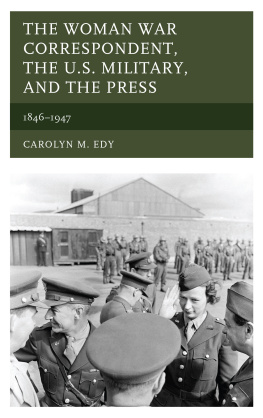
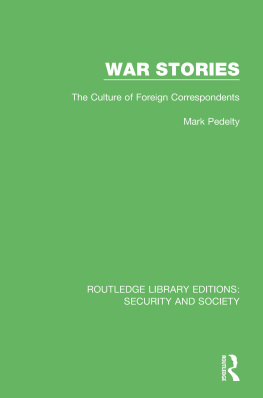
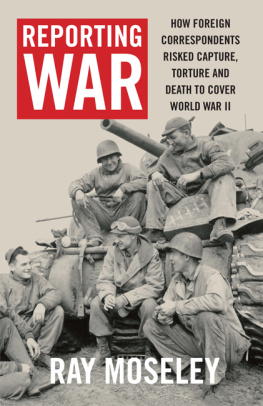
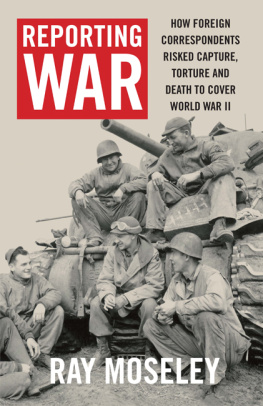
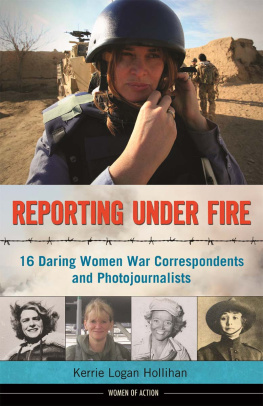
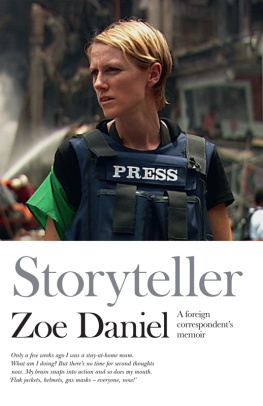


 The paper used in this publication meets the minimum requirements of the American National Standard for Information SciencesPermanence of Paper for Printed Library Materials, ANSI Z39A8-1992.
The paper used in this publication meets the minimum requirements of the American National Standard for Information SciencesPermanence of Paper for Printed Library Materials, ANSI Z39A8-1992.